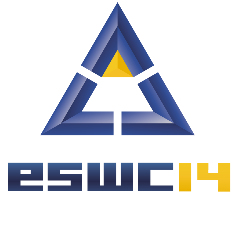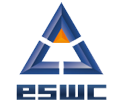AI Mashup Challenge
Challenge Website: http://aimashup.org/
Topics Of Interest
The AI mashup challenge accepts and awards mashups that use AI technology, including but not restricted to machine learning and data mining, machine vision, natural language processing, reasoning, ontologies in the context of the semantic web. Such services may run on any medium, including web browsers, handheld devices, mobile phones (IOS, Android), etc. Imagine for example:
- Information extraction or automatic text summarization to create a task-oriented overview mashup for mobile devices
- Semantic Web technology and data sources adapting to user and task-specific configurations
- Semantic background knowledge (such as ontologies, WordNet, Freebase or Cyc) to improve search and content combination
- Machine translation for mashups that cross-language borders
- Machine vision technology for novel ways of aggregating images, for instance mixing real and virtual environments
- Intelligent agents taking over simple household planning tasks
- Text-to-speech technology creating speech mashups with intelligent and emotional intonation
- Speech-to-text technology for interactive speech mashups and multimodal services
- The display of Pub Med articles on a map based on geographic entity detection referring to diseases or health centers
- The integration of enterprise data - see Open Mashup Alliance.
- The emphasis is not on providing and consuming semantic markup, but rather on using intelligence to mashup these resources in a more powerful way. For more ideas have a look at last year's AI Mashup 2013 Challenge.
Mashups
A mashup is a lightweight (web) application that offers new functionality by combining, aggregating and transforming resources and services available on the web. Combination alone is not enough to call it a mashup. Consider, for example, visiting a site that is written in a foreign language. Simultaneously using a dictionary in order to translate certain words is not a mashup. A possible mashup would be a new service allowing to click on a foreign word and simultaneously get it translated.
For example MICI is a mashup which demonstrates how situational awareness in emergency management can be raised by pointing to critical infrastructure near emergencies. MICI uses live fire call data from data.seattle.gov and enhances it with information about nearby objects from Linked Geo Data.
A mashup overview as well as a long list of mashable items can be found at programmableweb. For those of you that prefer to read a book, you can take a glance at Ogrinz's Mashup patterns, Hanson's Mashup strategies or Shanahan's Amazon.com Mashups. There are also mashup guides for specific services like Flickr or Yahoo!.
Participants of the 2011 and 2012 challenges contributed to an (e)book “Semantic Mashups - Intelligent Reuse of Web Resources”. It was published by Springer.
Some Mashup Tools
Google AppEngine — Yahoo Pipes — Yahoo Boss — Sprout Mashup Builder — JackBe Mashup Builder — Convertigo
Some Semantic Web Tools
Linked Data Basics for Techies OpenCalais — LinkedOpenData — OpenCyc — Ontos API
Some Speech-based Web Resources
AT&T Speech Mashups — AT&T Speech API — Tropo —Twilio — NeoSpeech — Acapela — Ivona — VoiceForge
Instructions for Challengers
Challengers should provide both a paper describing their mashup and an online, working prototype. Initially, all mashups will undergo a peer-review process that decides which Challengers will qualify to participate in the ESWC 2014 Conference. The qualification decision will be based on the quality of the submitted paper and the maturity of the corresponding mashup. Keep in mind that during the reviewing process, the members of the Program Committee will look for an online (not necessarily complete) version of each mashup. The participation process is outlined in the following steps:
As soon as you decide to participate in this event, register your mashup by sending a short (no more than 200 words) abstract to Ioannis Papadakis (address below). The organizers will provide you with access to a subpage of this wiki in order to advertise your mashup and refer to its URL. Have in mind that your mashup stays at your URL and under your control. You can go on improving it until the days of the conference.
Submit an 8-page paper (LNCS format) corresponding to the mashup. Be careful, there is a deadline for paper submission! All submissions will be peer-reviewed. The paper reviewing process along with the mashup evaluation per se will result in the mashups that qualify to participate in the event and compete for the highest ranking.
The Challenge will have its own session during the ESWC 2014 Conference. If you qualify to the event, you will be asked to present your mashup with a poster and/or laptop. Moreover, all qualified papers will participate in a dedicated proceedings volume at CEUR-WS.org.
At the end of the event, all Conference participants will vote for the best mashup. Their vote will decide the winners of the Challenge. The three mashups that received the best reviews in the qualification process will be granted extra votes during the voting. More specifically, the best review will receive 4 extra votes, the second-best will receive 2 extra votes and the third-best will receive 1 extra vote.
The final results will be announced during the closing ceremony of the Conference and any possible awards will be given to their owners.
The top-three mashups will have the opportunity to provide an extended version of their initial papers that will undergo another peer-reviewing process to participate in supplementary post-conference proceedings to be published by Springer in the Lecture Notes in Computer Science series. If your paper belongs to the top-three, you will be asked to address the reviewers' comments and provide a camera-ready version as well.
Have in mind that you have enough time until the days of the Conference to improve your mashup and increase your chances to be highly ranked.
Deadlines - Important dates
Abstract submission: March 8th, 2014 (new)
Paper submission: March 22nd, 2014 (new)
Notification of acceptance: April 7th, 2014
Camera-ready paper submission: April 21st, 2014
AI Mashup Challenge session, talks on running mashups: to-be-announced
Poster and Demo session, mashup presentation and vote: to-be-announced
Closing ceremony, distribution of possible awards: to-be-announced
Post-proceedings extended paper submission: to-be-announced
Post-proceedings notification of acceptance: to-be-announced
Contact
The organizers are glad to help. Please send them an email!
Organizers
Michalis Stefanidakis mixstef@gmail.com
Giuseppe “Pino” Di Fabbrizio difabbrizio@gmail.com
Ioannis Papadakis ipapadakis@gmail.com
Program Committee
Christoph Lange (University of Birmingham, UK)
Jevon Wright (Massey University, New Zealand)
Heiko Paulheim (Technische Universitat Darmstadt, Germany)
Olexiy Chudnovskyy (Chemnitz University of Technology, Germany)
Michalis Stefanidakis (Ionian University, Greece)
Thorsten Liebig (University of Ulm & derivo GmbH, Germany)
Ikuya Yamada (Studio Ousia Inc., Japan)
Emilian Pascalau (CNAM - Conservatoire national des arts et metiers, France)
Emanuele Della (Valle Politecnico di Milano, Italy)
Charalampos Bratsas (A.U.Th. Semantic Web Unit, OKFN, Greece)
Felix Burkhardt (Telekom Innovation, Germany)
Deborah Dahl (Conversational Technologies,Applied Voice Input/Output Society (AVIOS), World Wide Web Consortium)
Bill Scholz, SpeechTechnology Consultant, (NewSpeech, LLC)
Luis M. Vilches Blazquez (Ontology Engineering Group, Facultad de Informatica - Universidad Politecnica de Madrid)
For more information please visit the official website: http://aimashup.org/























